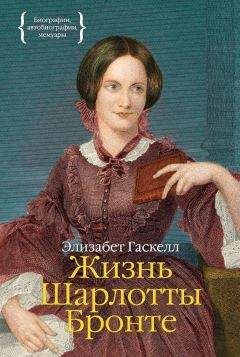Владимир Набоков - Комментарии к «Евгению Онегину» Александра Пушкина
На нашем сайте KnigaRead.com Вы можете абсолютно бесплатно читать книгу онлайн Владимир Набоков, "Комментарии к «Евгению Онегину» Александра Пушкина" бесплатно, без регистрации.
II
Thus a young scapegrace thoughtas with post horses in the dust he flew,
by the most lofty will of Zeus
4 the heir of all his kin.
Friends of Lyudmila and Ruslan!
The hero of my novel,
without preambles, forthwith,
8 I'd like to have you meet:
Onegin, a good pal of mine,
was born upon the Neva's banks,
where maybe you were born,
12 or used to shine, my reader!
There formerly I too promenaded —
but harmful is the North to me.1
III
his father lived by means of debts;
gave three balls yearly
4 and squandered everything at last.
Fate guarded Eugene:
at first, Madame looked after him;
later, Monsieur replaced her.
8 The child was boisterous but charming.
Monsieur l'Abbé, a poor wretch of a Frenchman,
not to wear out the infant,
taught him all things in play,
12 bothered him not with stern moralization,
scolded him slightly for his pranks,
and to the Letniy Sad took him for walks.
IV
for Eugene came,
season of hopes and tender melancholy,
4 Monsieur was ousted from the place.
Now my Onegin is at large:
hair cut after the latest fashion,
dressed like a London Dandy2 —
8 and finally he saw the World.
In French impeccably
he could express himself and write,
danced the mazurka lightly, and
12 bowed unconstrainedly —
what would you more? The World decided
that he was clever and most charming.
V
in something and somehow:
hence in our midst it is not hard,
4 thank God, to flaunt one's education.
Onegin was, in the opinion
of many (judges resolute and stern),
a learned fellow but a pedant.
8 He had the happy talent,
without constraint, in conversation
slightly to touch on everything,
keep silent, with an expert's learned air,
12 during a grave discussion, and provoke
the smiles of ladies with the fire
of unexpected epigrams.
VI
still, to tell you the truth,
he had enough knowledge of Latin
4 to make out epigraphs,
expatiate on Juvenal,
put at the bottom of a letter vale,
and he remembered, though not without fault,
8 two lines from the Aeneid.
He had no inclination
to rummage in the chronological
dust of the earth's historiography,
12 but anecdotes of days gone by,
from Romulus to our days,
he did keep in his memory.
VII
life for the sake of sounds,
an iamb from a trochee —
4 no matter how we strove — he could not tell apart.
Theocritus and Homer he disparaged,
but read, in compensation, Adam Smith,
and was a deep economist:
8 that is, he could assess the way
a state grows rich,
what it subsists upon, and why
it needs not gold
12 when it has got the simple product.
His father could not understand him,
and mortgaged his lands.
VIII
I have no leisure to recount;
but where he was a veritable genius,
4 what he more firmly knew than all the arts,
what since his prime had been to him
toil, torment, and delight,
what occupied the livelong day
8 his fretting indolence —
was the art of soft passion
which Naso sang,
wherefore a sufferer
12 his brilliant and unruly span
he ended, in Moldavia,
deep in the steppes, far from his Italy.
IX.
. . . . . . . . . . . . . . . . . . .
. . . . . . . . . . . . . . . . . . .
X
conceal a hope, show jealousy,
shake one's belief, make one believe,
4 seem gloomy, pine away,
appear proud and obedient,
attentive or indifferent!
How languorously he was silent,
8 how fierily eloquent,
in letters of the heart, how casual!
With one thing breathing, one thing loving,
how self-oblivious he could be!
12 How quick and tender was his gaze,
bashful and daring, while at times
it shone with an obedient tear!
XI
in jest astonish innocence,
alarm with ready desperation,
4 amuse with pleasant flattery,
capture the minute of softheartedness;
the prejudices of innocent years
conquer by means of wits and passion,
8 wait for involuntary favors,
beg or demand avowals,
eavesdrop upon a heart's first sound,
pursue love — and all of a sudden
12 obtain a secret assignation,
and afterward, alone with her,
amid the stillness give her lessons!
XII
the hearts of the professed coquettes!
Or when he wanted to annihilate
4 his rivals,
how bitingly he'd tattle!
What snares prepare for them!
But you, blest husbands,
8 you remained friends with him:
him petted the sly spouse,
Faublas' disciple of long standing,
and the distrustful oldster,
12 and the majestical cornuto,
always pleased with himself,
his dinner, and his wife.
XIII. XIV.
. . . . . . . . . . . . . . . . . . .
. . . . . . . . . . . . . . . . . . .
XV
when little billets would be brought him.
What? Invitations? Yes, indeed,
4 to a soiree three houses bid him:
here, there will be a ball; elsewhere, a children's fete.
So whither is my scamp to scurry?
Whom will he start with? Never mind:
8 'tis simple to get everywhere in time.
Meanwhile, in morning dress,
having donned a broad bolivar3,
Onegin drives to the boulevard
12 and there goes strolling unconfined
till vigilant Bréguet
to him chimes dinner.
XVI
The cry “Way, way!” resounds.
With frostdust silvers
4 his beaver collar.
To Talon's4 he has dashed off: he is certain
that there already waits for him [Kavérin];
has entered — and the cork goes ceilingward,
8 the flow of comet wine spurts forth,
a bloody roast beef is before him,
and truffles, luxury of youthful years,
the best flower of French cookery,
12 and a decayless Strasbourg pie
between a living Limburg cheese
and a golden ananas.
XVII
to drown the hot fat of the cutlets;
but Bréguet's chime reports to them
4 that a new ballet has begun.
The theater's unkind
lawgiver; the inconstant
adorer of enchanting actresses;
8 an honorary citizen of the coulisses,
Onegin has flown to the theater,
where, breathing criticism,
each is prepared to clap an entrechat,
12 hiss Phaedra, Cleopatra,
call out Moëna — for the purpose
merely of being heard.
XVIII
the sovereign of courageous satire,
sparkled Fonvízin, freedom's friend,
4 and imitational Knyazhnín;
there Ózerov involuntary tributes
of public tears, of plaudits
shared with the young Semyónova;
8 there our Katénin resurrected
Corneille's majestic genius;
there caustic Shahovskóy brought forth the noisy
swarm of his comedies;
12 there, too, Didelot did crown himself with glory;
there, there, beneath the shelter of coulisses,
my young days sped.
XIX



